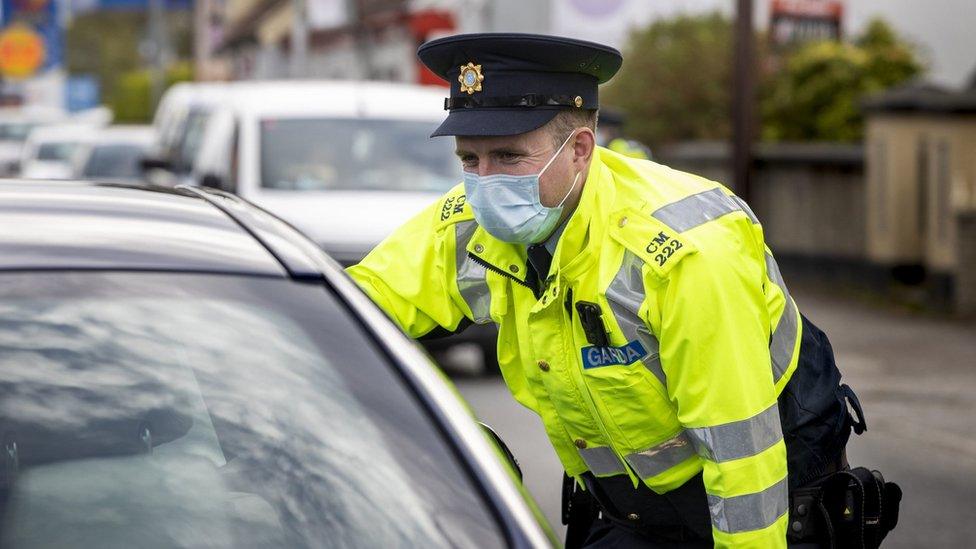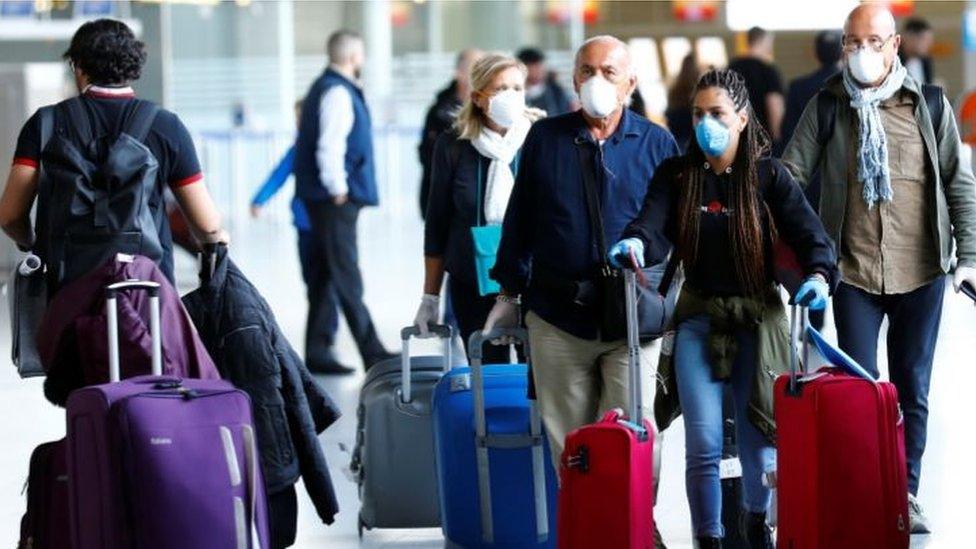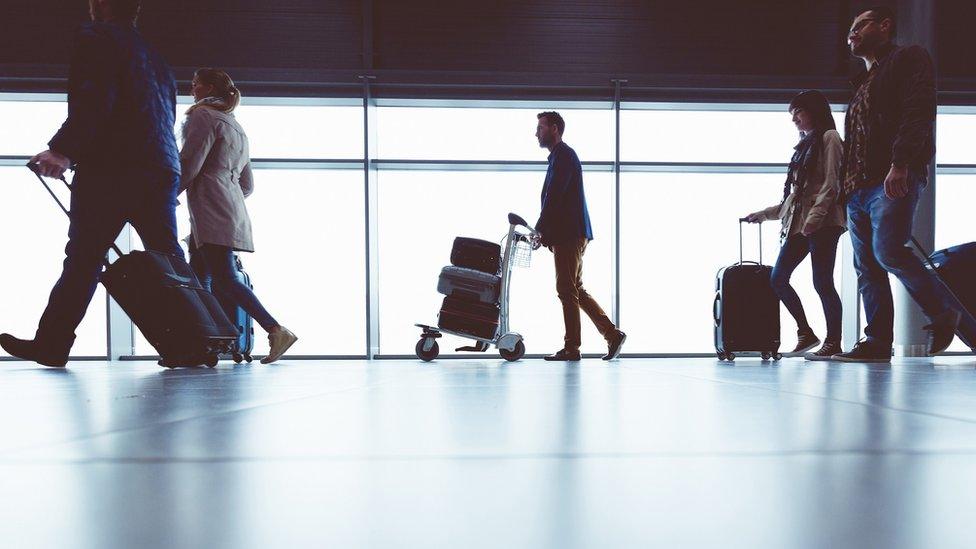Coronavirus: More north-south co-operation needed on Covid-19, Coveney says
- Published

Level three restrictions in Ireland remain in place until midnight on 27 October
The Irish foreign affairs minister has said that his government is "not in the business of erecting barriers on the (Irish) border" but a conversation with Stormont about how "movement is being restricted within NI" is needed.
Simon Coveney told RTÉ that more co-operation between north and south was needed.
Movement is restricted between counties in the Republic of Ireland.
Garda (Irish police) checkpoints have been set up across the country.
"During the first wave we had managed to see lot of co-operation between the PSNI and An Garda Síochána in terms of restricting movement generally on the island," he said.
"What is required here is clarity from politicians north and south and closer cooperation between the two CMOs, which is already a very good relationship, but politicians need advice from their CMOs to ensure we have a lot more co-operation," he added.
Mr Coveney also told RTE's Morning Ireland that NI Secretary Brandon Lewis had told him that the UK government has already made significant funding available to the NI Executive, specifically for Covid-19.
"I'd like to speak to some of the senior politicians in Northern Ireland today to establish exactly what is the blockage there because certainly was very clear with me yesterday that funding should not be the blockage," he added.

Meanwhile it has been announced that there will be no countries on the Republic of Ireland's safe travel list from Monday, the Irish Foreign Ministry has announced.
The Irish government's Green List features countries people can travel to without having to restrict their movements when they return.
From Monday, Cyprus, Finland, Latvia and Liechtenstein will be removed.
The list does not affect cross-border travel to and from Northern Ireland.
Nowhere was found to be below the required 14-day cumulative number of Covid-19 cases.
This criteria, judging the number of cases per 100,000 population, is based on data from the European Centre for Disease Protection.
Allow X content?
This article contains content provided by X. We ask for your permission before anything is loaded, as they may be using cookies and other technologies. You may want to read X’s cookie policy, external and privacy policy, external before accepting. To view this content choose ‘accept and continue’.
The department of foreign affairs said it reviews the list every Thursday, with changes taking effect the following Monday.
In a statement, it said: "Ireland continues to work with EU partners to finalise negotiations on the new Council Recommendation on co-ordinating travel with the Union ('EU traffic lights system').
The Northern Ireland Executive publishes a separate list on exempted countries and territories, external from which travellers do not have to self-isolate.
It still includes Cyprus, Finland, Latvia and Liechtenstein.
Travel by people from Northern Ireland and the Republic of Ireland is allowed across the Irish border, however, Great Britain is excluded from the Republic's Green List.
Tighter Covid-19 restrictions are currently in force in County Donegal until 16 October.
The move followed a rise in case numbers in Donegal and NI's north west. The chief medical officers from NI and the Republic of Ireland have advised against all but necessary travel across the NI-Donegal border.
- Published22 July 2020
